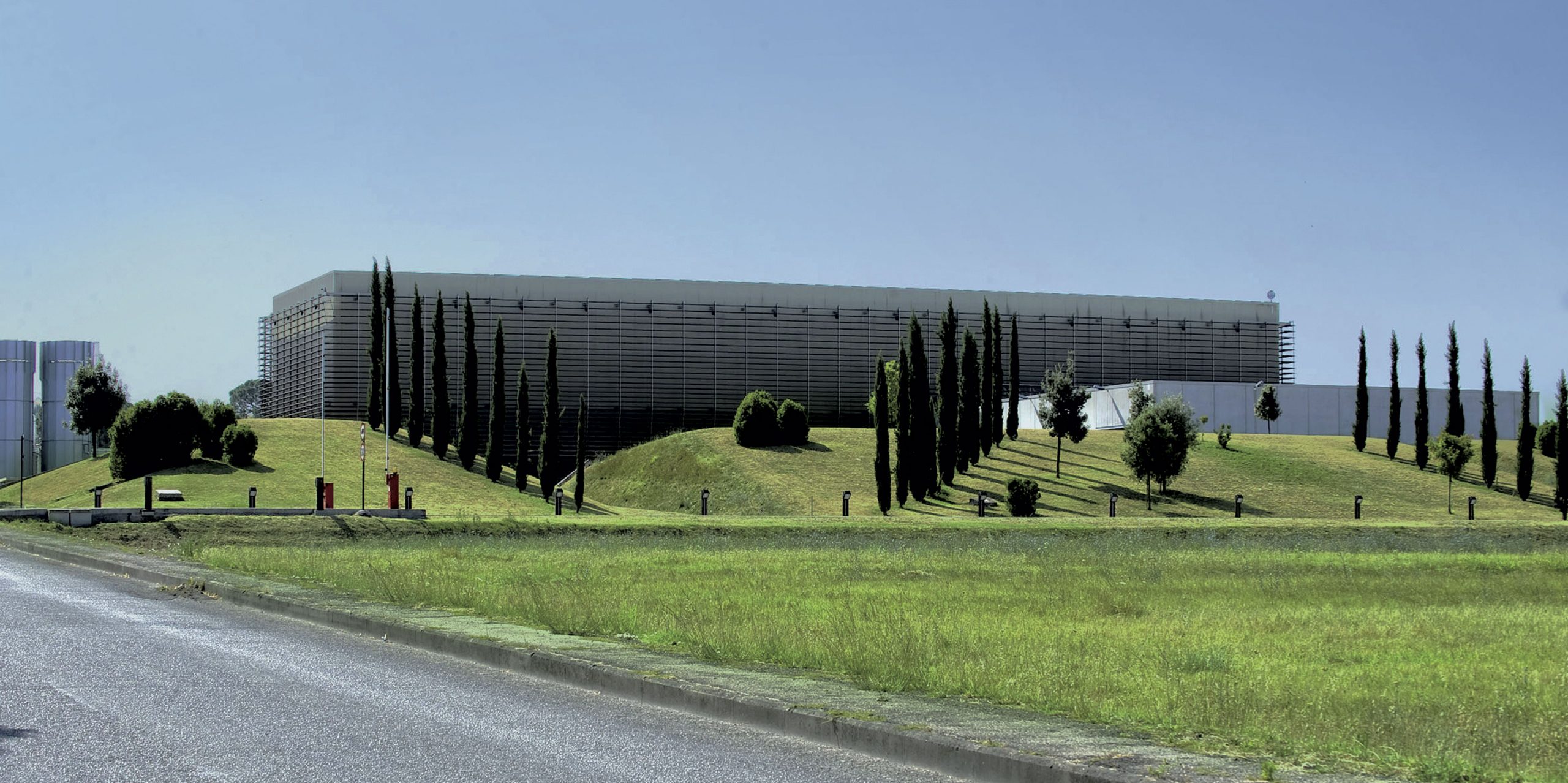Behind any company there is always more than meets the eye. There is a history, human values, a philosophy, a perspective. Behind Listone Giordano, brand belonging to the Margaritelli Group, there is this and much more: a culture that is transformed into a product, a connection with the territory that has become progress.
Passing through three centuries and four generations, the Margaritelli family has intimately linked their name and their activity to a material, that of wood, demonstrating an extraordinary ability for adaptation in regard to contingent events and a strong spirit of innovation, driven by an authentic passion for research. And if it is the naturalness of the wood that has given life to the company, it is the constant search for sustainability and protection of the environment that marks every aspect of its production cycle and beyond.
To learn much more about this company, we have come to Miralduolo, hamlet of Torgiano (Perugia), directly in the heart of Italy as well as being the beating heart of the company.
Productive spirit
It is, in fact, in the heart of Umbria, among the rolling green hills and organic vineyards, where Listone Giordano was born, perfectly integrated with the surrounding nature (according to a project by ABDR Architetti Associati), now considered as a benchmark for its plant automation and organisational values. This is where there is the conclusion – through increasingly technologically sophisticated processing phases – of the production cycle of many of the brand’s parquet proposals, divided into three collections:
Classica (including 15 different lines, but united by their large formats, their numerous shades of colour of the certified Oak, and by their natural finishes and customisable laying patterns); Atelier, which draws on traditional craft techniques to create products that are always unique; Natural Genius, that is entrusted to the creativity of five talents in the fields of architecture, design and graphics – Michele De Lucchi, Patricia Urquiola, Matteo Nunziati, Daniele Lago and Marco Tortoioli Ricci – for the contemporary interpretation of hardwood floors, for heretofore unseen combinations of different materials, finishes, geometries and light effects.
But it is in the Margaritelli plant in Fontaines (built in the heart of Burgundy in 1961) where the processing of the wood begins. This is the place where the selection of raw materials is treated in the most scrupulous respect of the French legislation concerning the ecological and renewable management of the forest (through an integrated cycle which covers a period of around 180 years); with its production capacity of more than 60 thousand cubic metres per year, it is configured as one of the largest and most modern industrial companies for the first transformation of hardwoods worldwide.
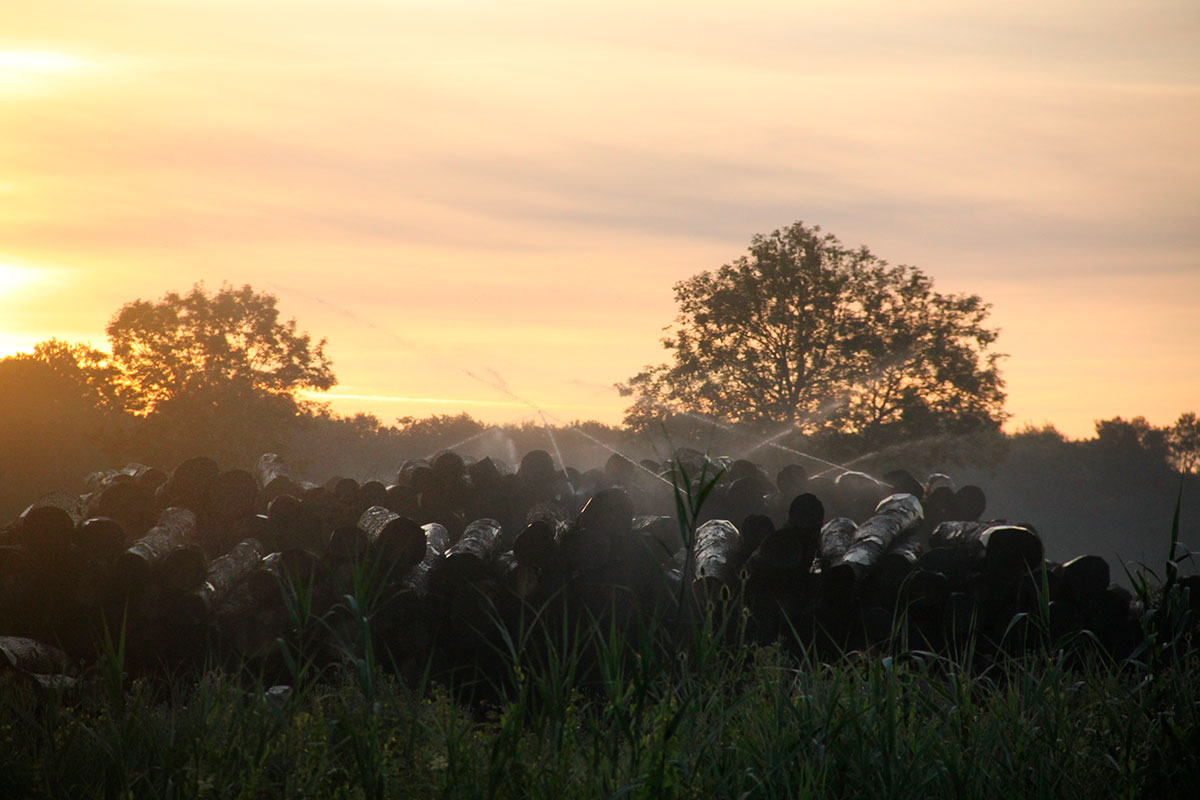
Green spirit
It is precisely from France that the Margaritelli family had learned the secrets of a thousand-year-old forestry tradition. Every single tree is registered, cultivated, cut only when it has matured and then systematically reforested. In the same spirit, Listone Giordano in 1999 became a supporter of the most important Italian hardwood reforestation work in the city of Pieve: 25,000 new Oak trees were planted in an area of over 150 hectares. An expression of foresight that goes beyond the ‘here and now’, this direct forestry commitment finds a similar approach in the processing of the finished product, which aims at maximum durability (with its thickness of 5 mm, the upper layer of Listone Giordano can be sanded, therefore making it renewable, allows a durability of the hardwood floor for more than 100 years); all the complementary products used are absolutely ecological, non-toxic and odourless, but the properties of Listone Giordano parquet go even further: the parquet improves thermal efficiency, balances the humidity of the rooms, prevents the accumulation of electrostatic charges and, thanks to the total absence of solvents and harmful emissions in the glues and varnishes used, creates natural conditions of healthy living.
The hardwood floor thus becomes a nothing less than a “promise of well-being”, with a perspective that is increasingly comparable to ‘wood therapy’.
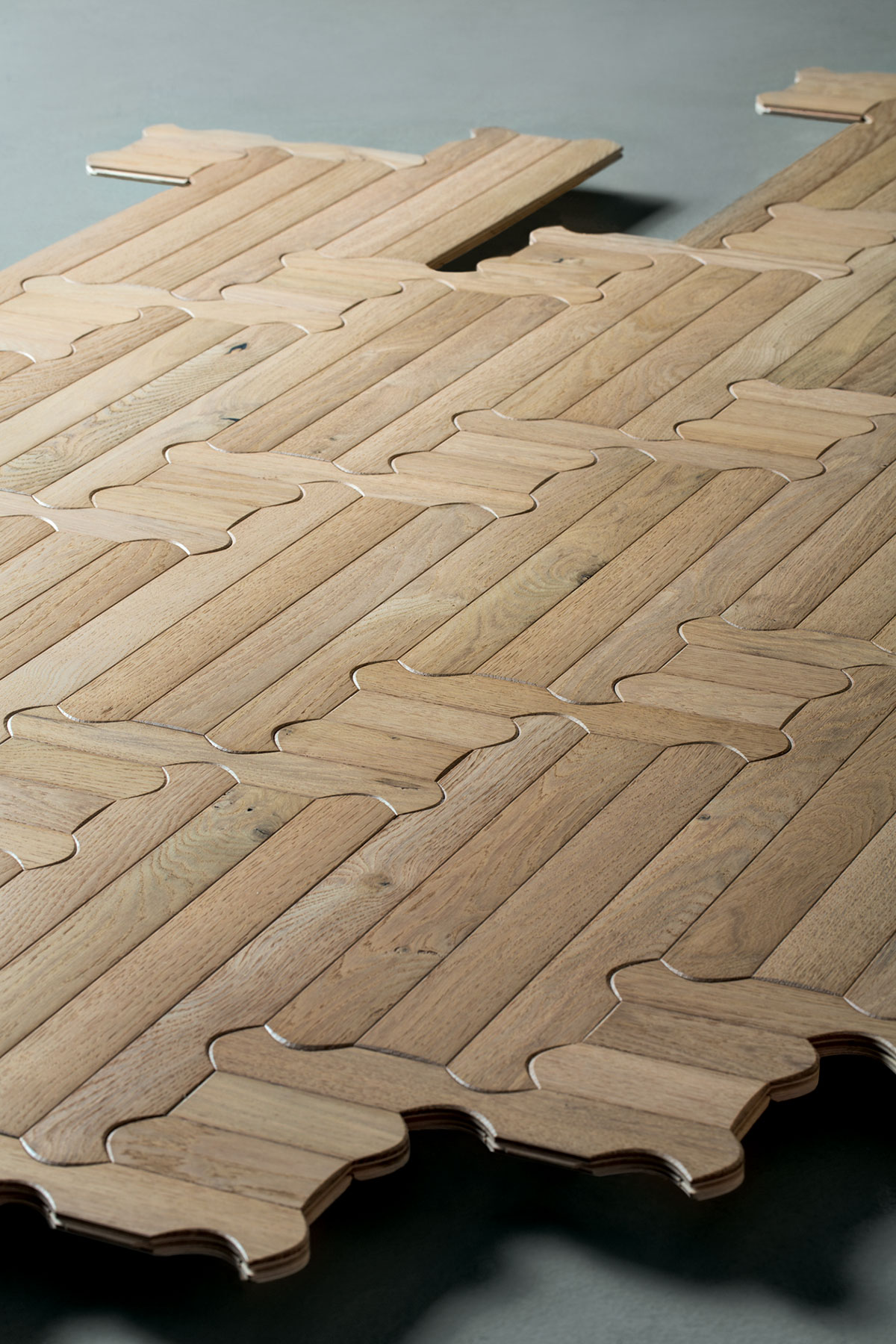
Innovative spirit
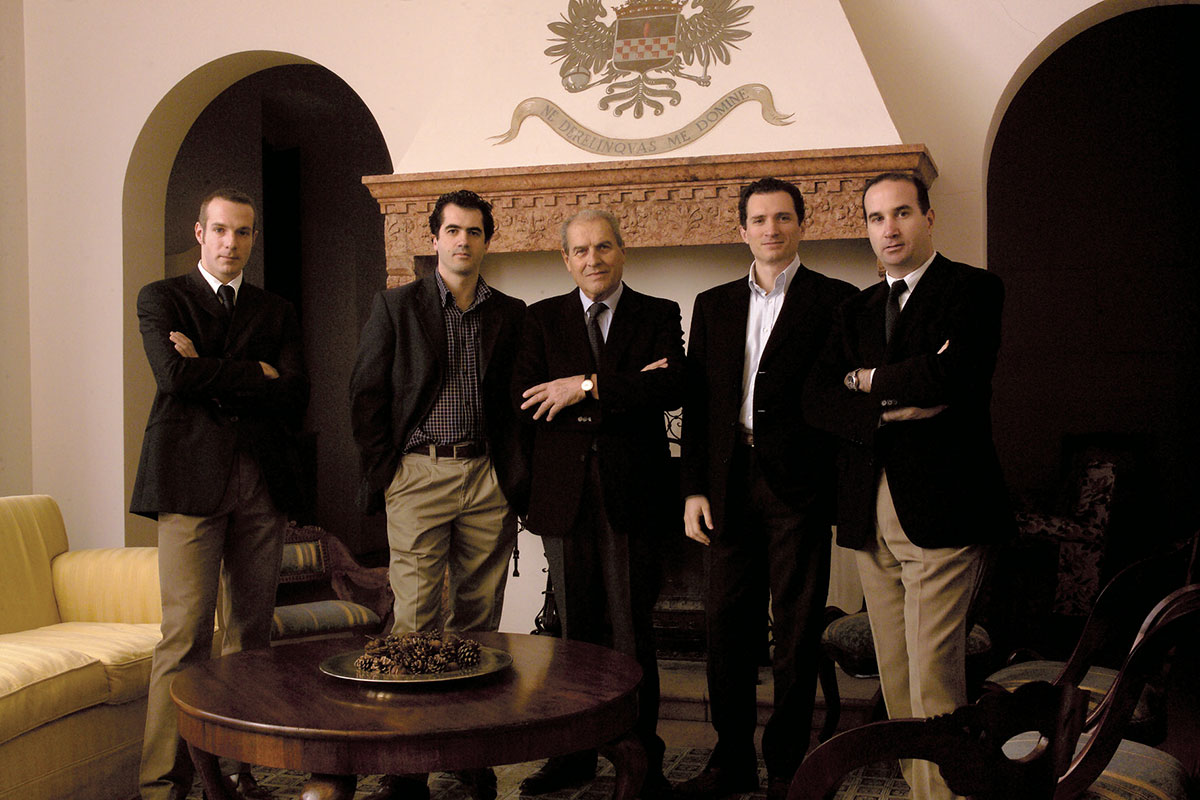
A revolution that definitively changed the fate of the company – but more in general, had changed the fate of traditional parquet – was the creation of a special support in birch plywood – patented in 1984 by prof. Guglielmo Giordano – which, together with the transversal incisions and the micrometric joints, makes the parquet stable over time and resistant to deformation for life. This is the secret of the Listone Giordano surfaces. Thus the road was opened for hardwood floors with elements in large formats and reduced thickness, for heated floors and the insertion of the parquet in difficult environments such as the kitchen and bathroom.
But the history of the brand and the company is full of constant intuitions that have diverted the flow towards surprising goals. Already at the beginning, when Fernando Margaritelli oriented the original activity – specialised in the production of mechanical tools for agriculture and forestry work, established in 1870 by Eugenio Margaritelli – to the sector of forestry and wood processing; with the crisis of wartime, the affinity of the company in the processing of wood was made available on the industrial scale for the production of wooden railway sleepers for the Ferrovie dello Stato (the Italian National Railway company), an activity that is still carried out by the Margaritelli Group with the production of reinforced concrete sleepers approved for the High Speed line). It was 1945. Following the Giordano patent and the creation of the brand, the primary focus became parquet, to which research, technology and experimentation have been dedicated to the creation of increasingly high-performance products; among these the new Outdoor Collection.
In the wake of innovation we find the Natural Genius project, part of an installation that embraces nature, technology and art: in the forest of Città della Pieve the Margaritelli family has allowed the Sound Artist Federico Ortica to transform the forest into an original stage for an unprecedented multisensory sound installation, “ResonaTrees”, the result of a research project lasting six months, where the trees of the Piegaro forest have become the means of diffusion with which to produce a form of bioacoustic communication.
Cultural spirit
The love of wood is the common thread that unites the company’s many fields of action. A commitment and dedication that culminates in an activity of patronage and culture, embodied in the Guglielmo Giordano Foundation. Founded in 2000 in Perugia, the Foundation promotes studies and research of a historical and technological nature on wood and likewise interacts with the world of art through the proposition of seminars, conferences, major exhibitions and publications on the most significant artistic expressions of the past and of the contemporary.
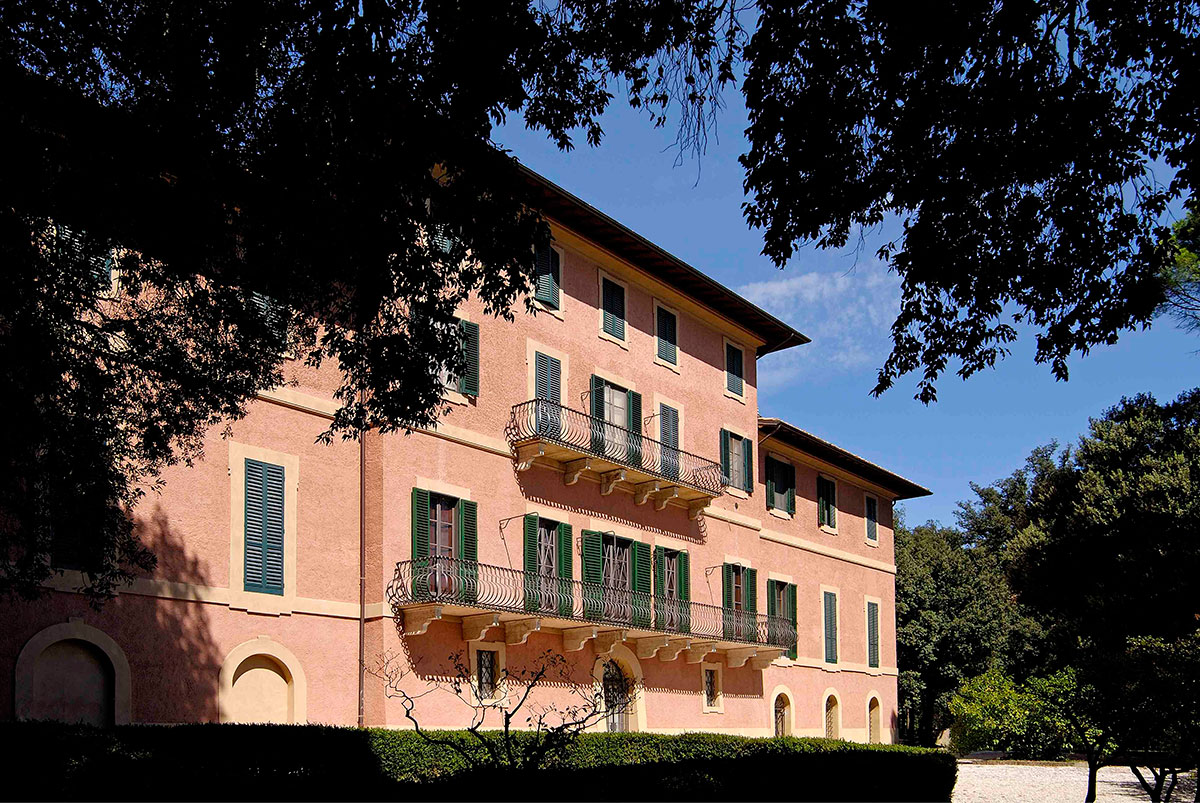
Among the major ‘conquests’ of the Foundation, the rediscovery of the work Baby Jesus of the hands by Pinturicchio, and the recent research by Andrea Margaritelli – Director of the Guglielmo Giordano Foundation and Listone Giordano Marketing Director – which brought to light the true and mysterious story of Thadea, the secret daughter of Emperor Carlo V, which became a volume published by the Foundation.
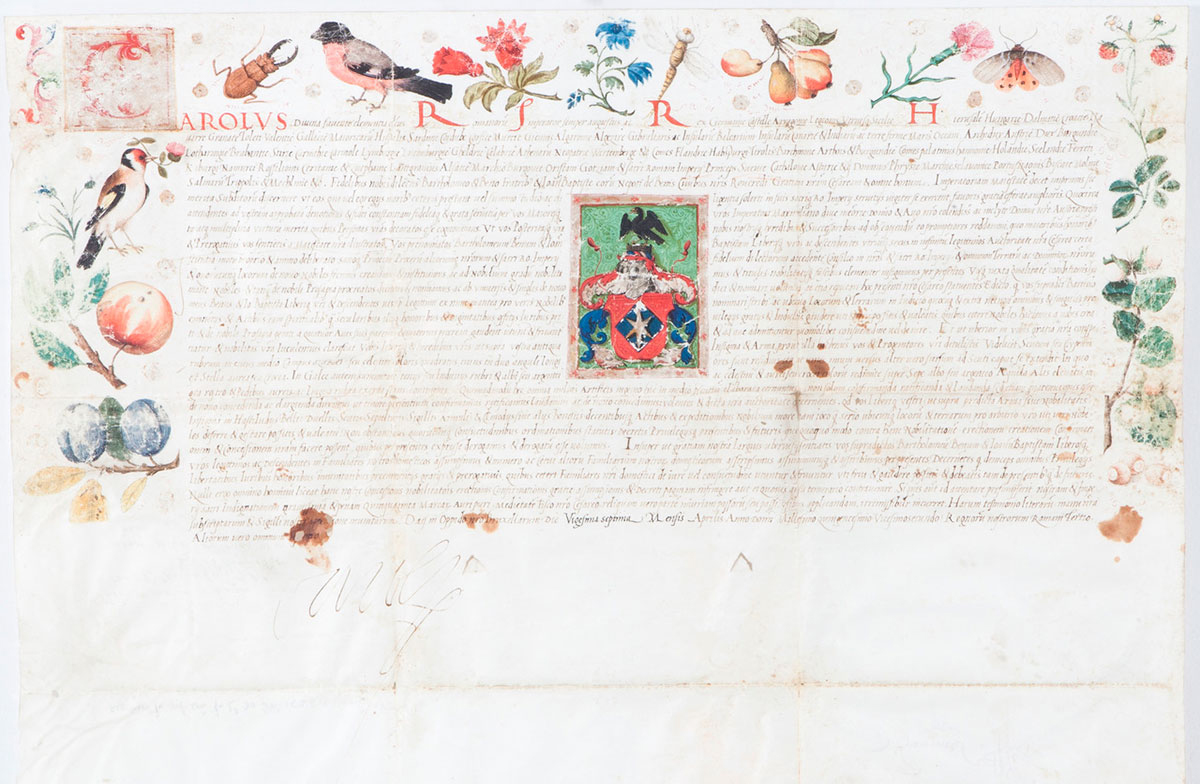
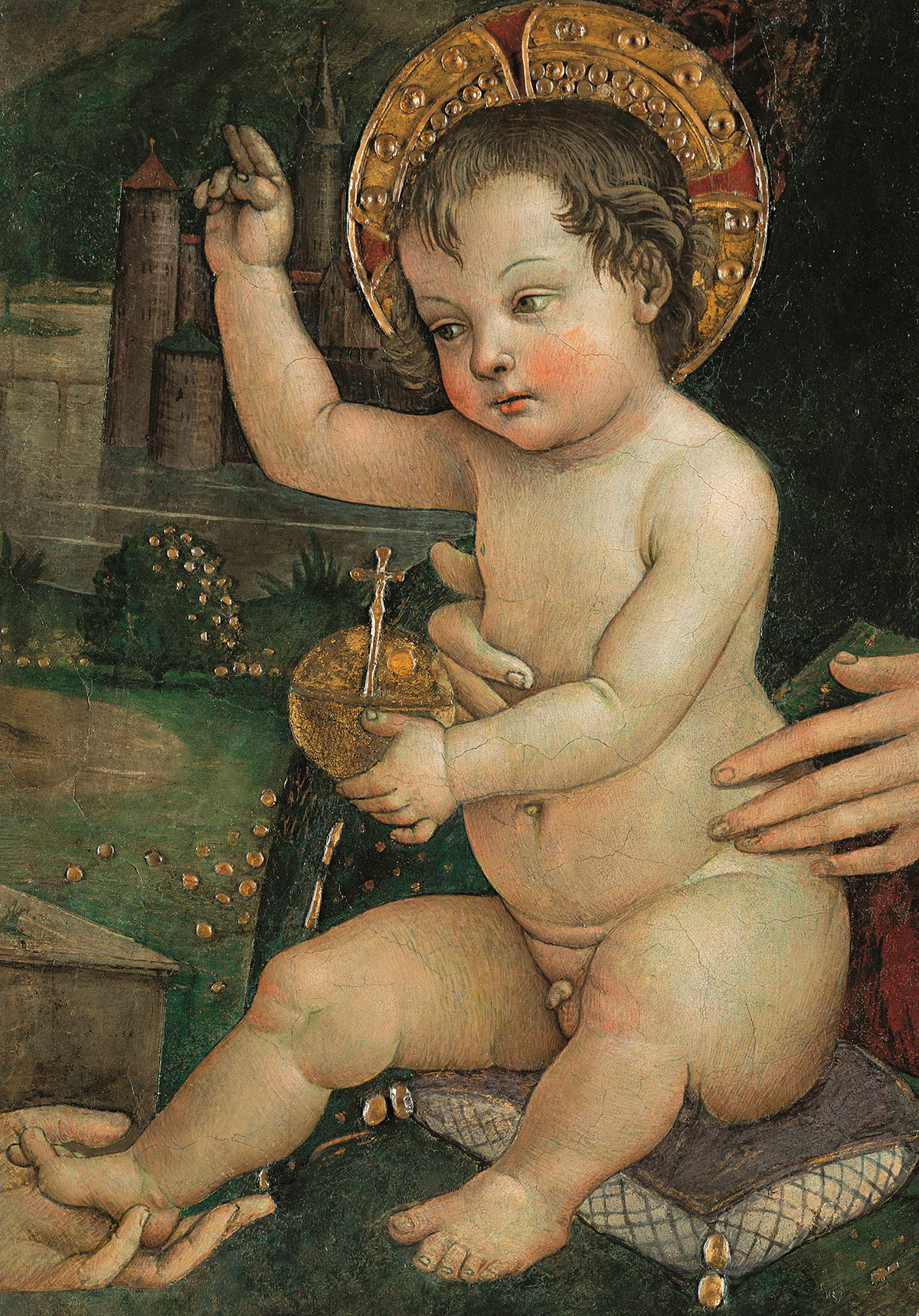
Wine producing spirit
The last, but no less important expression of the Margaritelli family’s passion is that for their land.
Few people know that in the 1950s Fernando Margaritelli decided to retire from entrepreneurial activity and dedicated himself to the cultivation of the grape to produce wine for himself and his family. From here was the step that in 2000 transformed it into the Terre Margaritelli vineyard and winemakers, with the replanting of the vineyard, the first vinification and the transition to organic farming. Sixty hectares developed on a hill of Miralduolo, a short distance from the company.
And once again, the connection with wood also manifests itself in this sector, which is not lacking in attention to this raw material: the barriques used are made exclusively of oak coming from the Bertrange forest, in Burgundy, which is characterised by a very delicate profile, with fresh balsamic notes that never cover the fruit.

